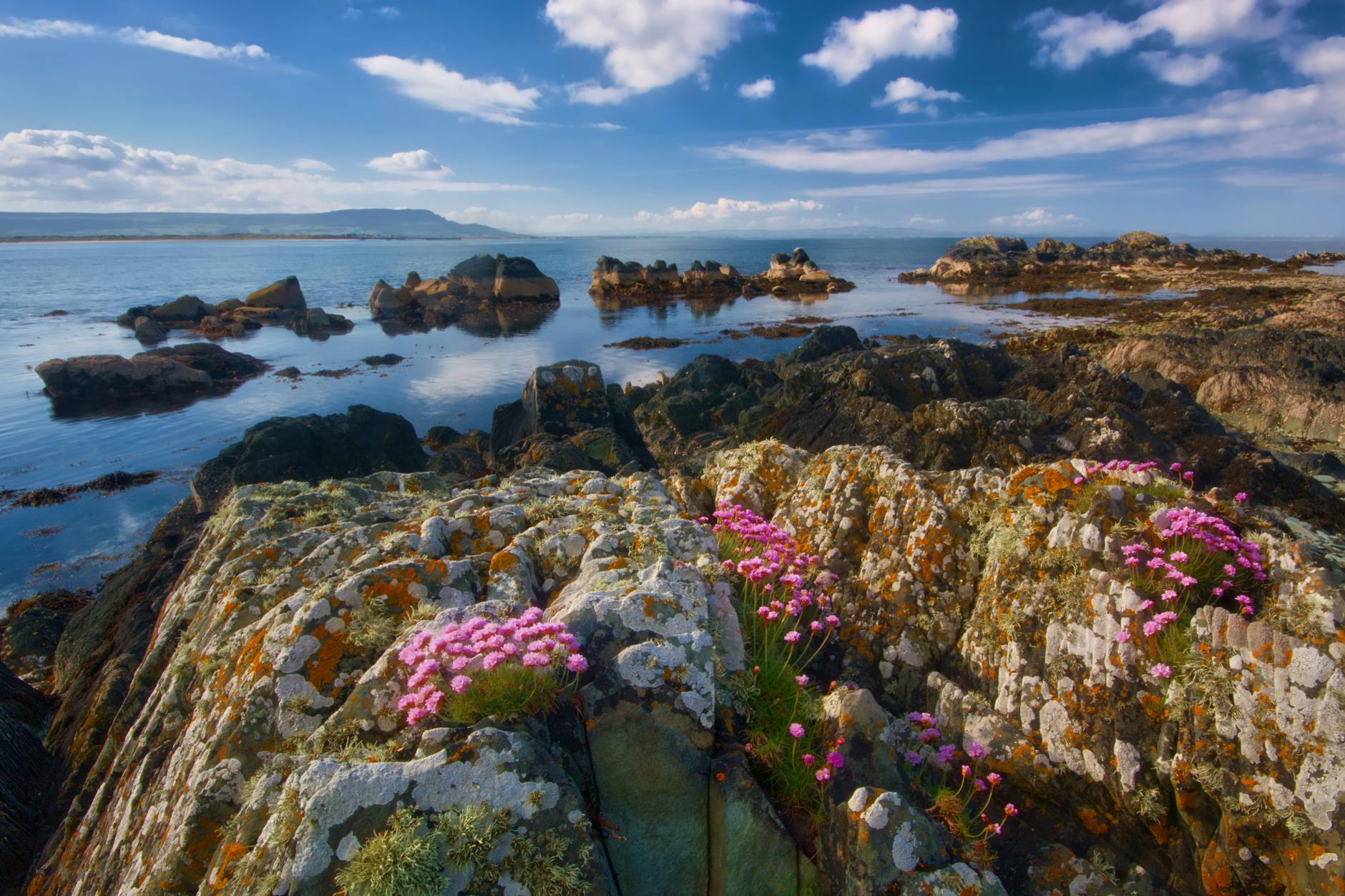How to Embrace Eco-Friendly Adventures in Australia

Choosing Eco-Friendly Destinations
As an eco-conscious traveler, picking the right destination is critical for maintaining sustainable tourism practices. When planning your next adventure, consider central america travel, where numerous locations are dedicated to preserving their natural and cultural heritage. Another great option is to explore African tours, where you can witness conservation efforts firsthand.
Researching Sustainable Regions
Thoroughly researching a region's commitment to sustainability can significantly enhance your travel experience. Look for countries that prioritise eco-friendly policies and limit their environmental impact. For instance, Costa Rica is celebrated for its conservation efforts, with a vast percentage of its land under protection.
Identifying Eco-Accredited Locations
Choosing destinations with eco-accreditations ensures that your travel will contribute positively to the environment. Frequently, destinations with these recognitions offer facilities or parks that focus on conservation and responsible tourism. Check for certifications like Green Globe or Ecotourism Australia when planning your trip.
Supporting Indigenous Conservation Efforts
A key component of sustainable travel is supporting the conservation efforts of indigenous communities. Many destinations in regions like Africa partner with locals for initiatives that benefit both tourism and cultural preservation. By visiting these locations, you’re directly contributing to the well-being of the community and their environment.
Next time you're meandering through the gorgeous landscapes of places like the Royal Botanic Gardens Victoria back home, consider how your travels align with the same commitment to conserving beauty and biodiversity worldwide. Your choices can serve as an empowering part of a broader environmental movement.
Sustainable Travel Practices
Eco-Friendly Accommodation Choices
Staying at eco-conscious accommodations can make a significant difference in how we travel sustainably. As green travel enthusiasts, it's vital to support lodging options that employ renewable energy sources, adhere to water conservation practices, and implement waste reduction strategies. Many places around the world are making strides in this direction, offering travellers a balance between comfort and environmental responsibility. Recently, I stayed at a hotel near the Royal Botanic Gardens Victoria that prioritised energy-efficient systems and encouraged guests to recycle throughout their stay. It was an invigorating reminder that sustainable options can be luxurious and comforting.
Reducing Carbon Footprint
Travelling doesn't have to come at the environment's expense. By making conscious choices, we can significantly reduce our carbon footprint. Opt for walking, cycling, or using public transportation when possible. They not only lower emissions but provide a more immersive local experience. If you're planning journeys to places like South America holidays or Antarctica travel, choose direct flights to minimise fuel consumption. Offsetting your carbon footprint is another powerful initiative. Numerous organisations offer programs that support reforestation and renewable energy projects, allowing travellers to contribute positively to the environment. It's inspiring to see how these small yet impactful actions lead to a more sustainable travel experience.
Engaging in Respectful Activities
Wildlife-Friendly Observations
When planning for kenya tours, it's essential to engage in wildlife-friendly activities that promote sustainability and respect for African ecosystems. Understanding how to interact with wildlife without disrupting their natural behavior is crucial. Whether observing the iconic 'Big Five' or marvelling at the vast herds of wildebeest, the goal is to witness these breathtaking sights with minimal disturbance. Using guides who emphasize eco-friendly practices ensures a rewarding experience that also contributes positively to conservation efforts.
Low-Impact Adventures
Participating in africa tours often means seeking adventures that don't leave a heavy footprint. Think of activities like guided walking safaris or canoeing trips which allow you to embrace nature intimately without contributing significantly to environmental degradation. By choosing experiences that align with eco-friendly principles, you're taking a step towards preserving the beauty of African landscapes, ensuring they remain unspoiled for generations to come. These adventures parallel the responsible approach to travel you might find at sustainable cafes in Fitzroy.
Supporting Local Ecology
Supporting local ecology involves not only exploring these regions responsibly but also contributing to their preservation. Engage with tours that invest in local communities and conservation projects, as they often provide an avenue for travelers to actively participate in ecological efforts. This could involve volunteering with local wildlife rehabilitation centers or supporting businesses that supply eco-friendly shops at South Melbourne Market, reflecting a commitment to sustainability that resonates from Melbourne to Africa. Each choice you make aids in promoting a healthier ecosystem.
Responsible Packing and Gear
Eco-Friendly Packing Tips
As a green travel enthusiast, I'm always on the lookout for eco-friendly packing strategies that align with my values. One effective tip is to pack light. Reducing the weight of your luggage helps lower the carbon emissions associated with transportation. Using a capsule wardrobe is a great way to achieve this—focus on versatile clothing that you can mix and match, allowing for multiple outfits with minimal items. I also recommend using reusable silicone bags instead of single-use plastics for toiletries or snacks, and always carry a sturdy, foldable tote bag for purchases.
Sustainable Gear Options
Investing in sustainable gear is another step towards promoting eco-friendly travel. Consider choosing luggage and backpacks made from recycled materials. Solar-powered chargers can be a fantastic way to keep your devices charged without relying entirely on traditional electricity sources, supporting your commitment to low-impact travel. Opt for bamboo or other sustainable materials for travel essentials like toothbrushes, combs, and cutlery. This is especially handy if you've got exciting plans for Tanzania tours or venturing into the natural wonders of distant lands such as South America travel.
Minimizing Waste Throughout Trips
To keep waste at bay during your travels, embrace practices that minimize waste generation. Carry a reusable water bottle to avoid buying single-use plastic bottles. Always have a reusable straw and cutlery set within reach—these small items can make a significant difference, especially when dining at local restaurants or indulging in local street food. It’s equally important to sort and dispose of waste responsibly, ensuring you leave behind only memories, not trash. Embracing these sustainable travel hacks empowers you to minimise ecological impact while exploring the world conscientiously.
Empowering Sustainable Connections
Collaborating with Local Experts
Connecting with local experts is a profound way to deepen your eco-friendly travel experience. By working closely with guides who understand the local ecosystem, we can make informed decisions that positively impact our environment. Engage with passionate environmentalists at the Royal Botanic Gardens Victoria to gain insights into native flora and fauna preservation efforts. These interactions provide us with unique perspectives and the opportunity to support research and conservation initiatives.
Advocating for Sustainable Tourism
Each visit is an opportunity to contribute to the movement of sustainable tourism. Whether it's choosing to patronize sustainable cafes in Fitzroy or buying products from eco-friendly shops at South Melbourne Market, our consumer choices make a statement. Participating in programs that focus on responsible tourism not only enlightens us but also helps shift the industry towards more environmentally responsible practices. Sharing your findings through social media channels or local forums amplifies the message, encouraging others to join the cause.
Sharing Knowledge and Experiences
An essential component of fostering eco-friendly travel is sharing knowledge. Not only does it propagate awareness, but it also inspires others to adopt these practices. Consider hosting a local meetup to discuss eco-friendly travel hacks and tips. This could include insights on reducing travel waste or discovering new eco-conscious destinations. Documenting your journey and the steps you've taken towards sustainable travel can serve as a guide for others looking to make a difference. Let's join hands in shaping a world where travel nurtures, rather than depletes, our planet.


